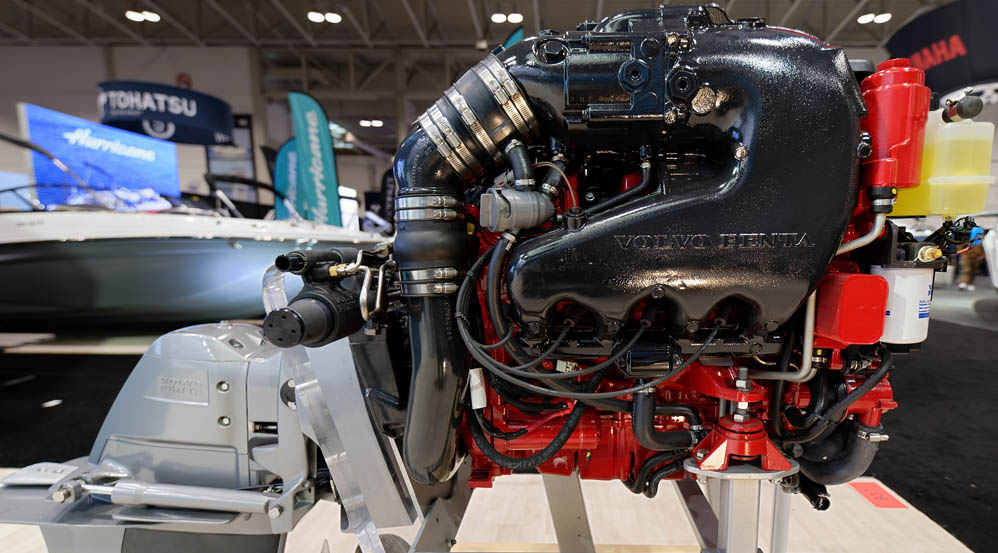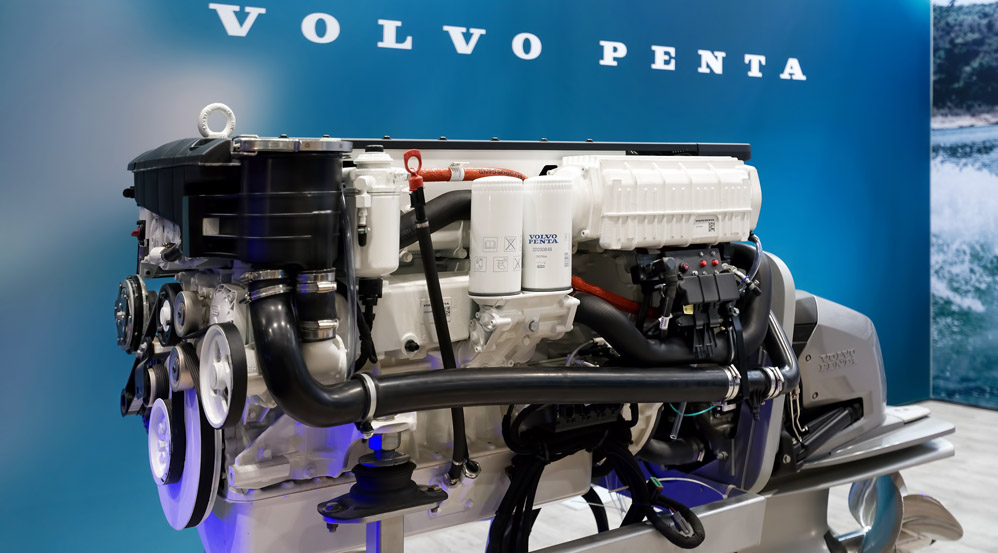- February 11, 2025
- Volvo Penta
- Volvo Penta’s Influence on the Marine Industry
For over a century, Volvo Penta has been at the forefront of marine engineering, revolutionizing the industry with innovative propulsion systems, fuel efficiency advancements, and intuitive control technologies. From commercial vessels to recreational boats, Volvo Penta has left an indelible mark on the maritime world.

A Legacy of Innovation
Founded in 1907, Volvo Penta started as a small engine manufacturer in Sweden. Over the years, it has evolved into a global leader in marine and industrial power solutions. The company’s commitment to innovation has led to groundbreaking developments that have reshaped the industry.
The Birth of the Sterndrive
One of Volvo Penta’s most significant contributions was the introduction of the Aquamatic sterndrive in 1959. This revolutionary propulsion system combined the benefits of an outboard and inboard engine, offering better efficiency, improved maneuverability, and higher speeds. The sterndrive quickly became a standard in the marine industry and is still widely used today.
IPS (Inboard Performance System) – A Game Changer
In 2005, Volvo Penta launched the Inboard Performance System (IPS), a pod-drive propulsion system that changed the game for marine navigation. IPS offered improved fuel efficiency, quieter operation, and joystick docking, making boating more accessible to a broader audience. By positioning forward-facing propellers beneath the hull, IPS dramatically improved maneuverability and reduced fuel consumption by up to 30% compared to traditional shaft drives.
The Shift Towards Electrification
As the marine industry faces growing environmental concerns, Volvo Penta is leading the way in sustainable solutions. The company has been investing heavily in hybrid and electric propulsion systems to reduce emissions and enhance efficiency. Their hybrid marine engines provide a seamless transition between diesel and electric power, aligning with the industry’s push toward cleaner energy sources.
A Focus on User Experience
Volvo Penta’s innovations are not just about performance—they are also about enhancing the user experience. Features like Joystick Docking, Dynamic Positioning System (DPS), and Glass Cockpit integration have made boating easier and safer for both new and experienced mariners.
Joystick Docking
This intuitive system allows captains to maneuver boats with precision, making docking in tight spaces effortless. By integrating with the IPS system, Joystick Docking has become a must-have feature for many boat owners.
Dynamic Positioning System (DPS)
DPS enables boats to maintain their position automatically, regardless of wind or current, which is particularly useful for fishing, diving, and waiting for bridge openings.
Glass Cockpit System
Developed in collaboration with Garmin, the Glass Cockpit System provides an advanced, fully integrated digital interface for monitoring and controlling all onboard systems, making navigation more efficient and user-friendly.
Volvo Penta in Commercial and Industrial Applications
Beyond the recreational boating market, Volvo Penta supplies engines and propulsion systems for commercial vessels, including ferries, workboats, and offshore support vessels. Their reliable and fuel-efficient engines help businesses reduce operational costs and minimize environmental impact.
Offshore and Workboat Reliability
Commercial operators rely on Volvo Penta for durable and efficient propulsion solutions. With extended service intervals and lower fuel consumption, Volvo Penta engines provide long-term cost savings and operational reliability.

Volvo Penta has consistently set the standard in the marine industry through innovation, efficiency, and user-friendly technology. As the industry moves towards sustainability and digital integration, Volvo Penta remains at the forefront, shaping the future of marine propulsion. Whether for recreational, commercial, or industrial applications, Volvo Penta’s influence on the marine industry is undeniable.
